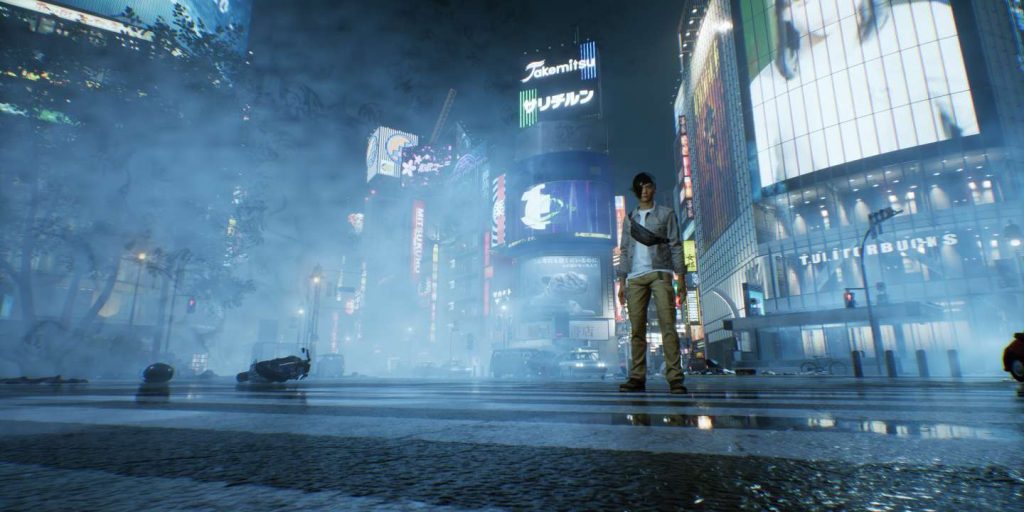
We tested “Ghostwire Tokyo”, a ghost hunting video game in the Japanese capital

Karakasa-Kozo is Supernatural being from Japanese folklore His appearance is unforgettable. This spirit that belongs to the family YokaiIt resembles a parachute with a large eye, a drooping tongue, and one leg with which it leaps forward. This is the creature we meet in Ghost Wire Tokyo, This ghost hunting game, available since March 22nd on Playstation 5 and PC, is similar: more fun than horror, it has a memorable but above all flawed character.
As its title suggests, Ghost Wire Tokyo It takes place in the Japanese capital. It can even legally be called “Ghostwire Shibuya,” because a good part of the adventure takes place in this trendy area: its busy crossroads – one of the popular spots in modern Japan – serves as a springboard for the adventure. During the cinematic opening, a mysterious mist swept through the area with which the residents vanished, leaving only their clothes on the ground. Akiko owes her salvation to the spirit of a man nicknamed KK, who takes over her body. This parasite eventually turns into a powerful companion who gives the young man supernatural powers.
unique atmosphere
Once we reach Akiko’s controls, we share his vision in first person and hear KK who unleashes us in the wake of the person who orchestrated the disaster. Our first joys lie in wandering around Tokyo that is like no postcard: the area unearthed turns out to be a labyrinth and littered with rubbish bins, bloodstains, or abandoned clothes, and the few buildings we can visit are inhospitable and lit. By the dim light of neon lights.
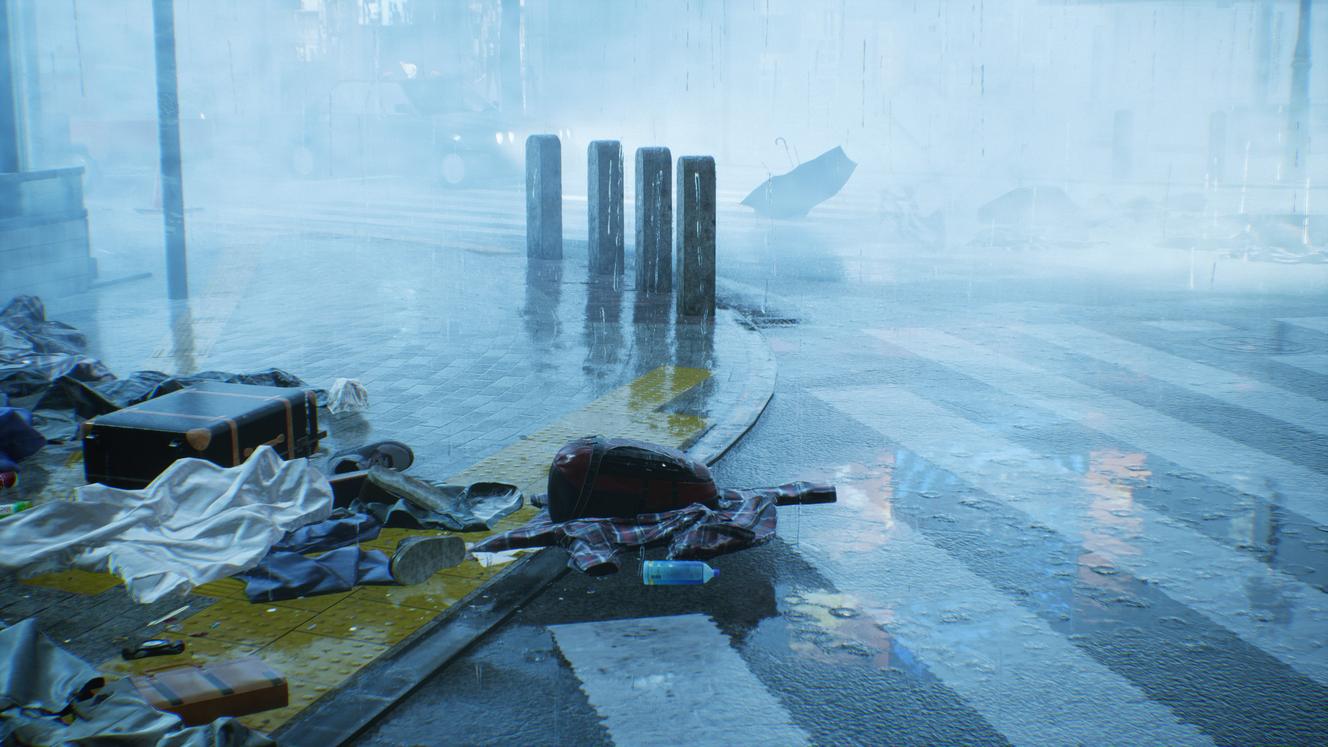
The overcrowded city feels even more oppressive after it has become deserted. From store shelves to construction site signage, attention to the smallest detail enhances immersion in this contemporary Tokyo, haunted by its verve and dynamism. We are glad to discover the sordid “love hotel” hidden between two buildings, pray in front of the statue of Jizu, the Buddha who accompanies the dead, to increase our abilities, or collect something unique in a narrow alley.
Skillful storytelling is also evident in the many side quests, some of which are based on tales and legends of the land. Others are closer to the story and tell of the gray areas of contemporary Japan, such as a mission that shows an old woman tormented by a greedy owner.
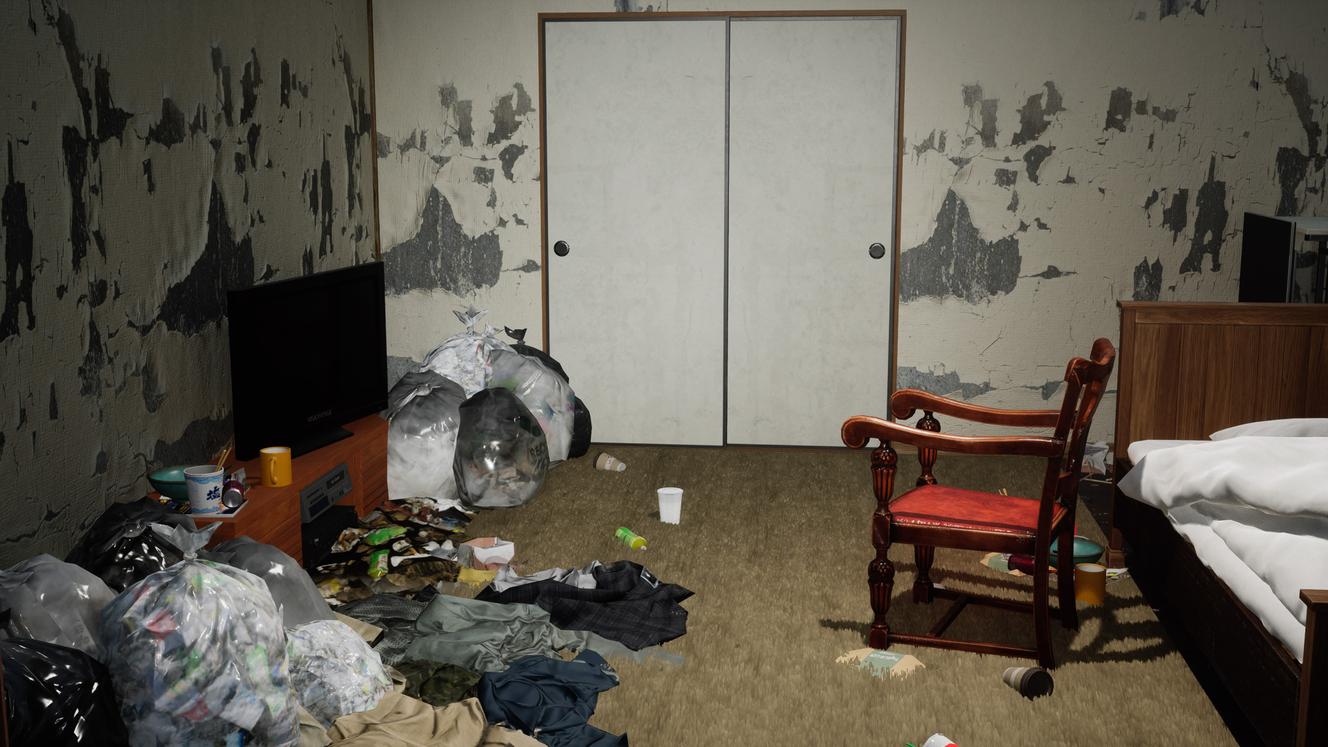
Frequent fights
However, like Yokai A one-legged umbrella, Tango Gameworks is in perpetual disarray. Exploration suffers from an interface that shows us the path as if we had used a GPS. The game also dreads so much that we get lost that blue clouds representing souls that please it are scattered all over to ensure any potential turn is rewarded.
The experience generally suffers from its combat system. The magical powers of the hero, which require a gentle gesture from the character, are a general pleasure. But the range of skills is quickly limited. As for the clashes, they quickly become unsurprising: the monsters first identify themselves by activating the character’s sixth sense, which highlights it from a distance, and then its artificial intelligence is as weak as its life bar.
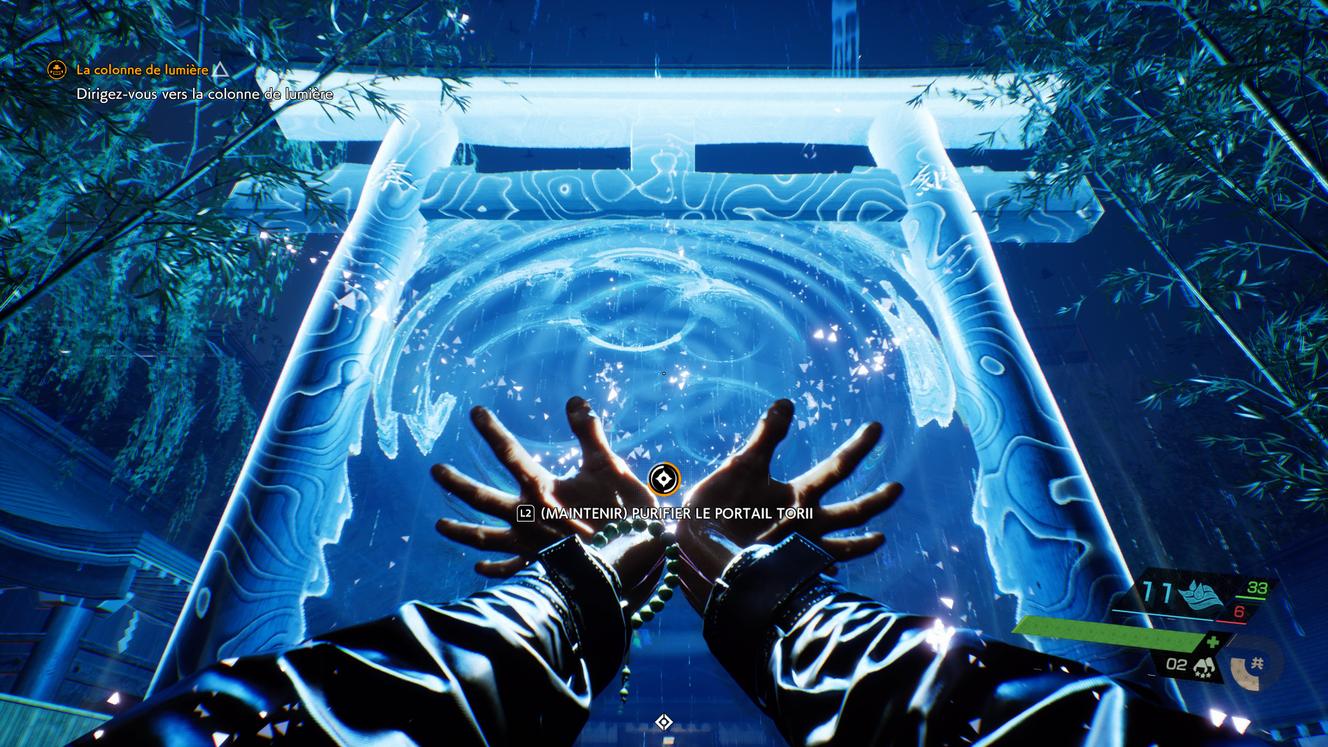
Add to that the seldom-to-fail ammo and consumables that allow you to reclaim your omnipresent life, and soon the routine begins to run over the hours of playing. The monsters that have invaded the city are becoming less and less frightening to us, because they almost never kill us.
In the end, we often wondered why the studio was founded by a creator vampireShinji Mikami treats us nicely this time. Atypical discoveries and a keen sense of satisfying detail are punished by ubiquitous help and cliched action game formulas. What left such a funny impression Ghost Wire Tokyo Just hops.
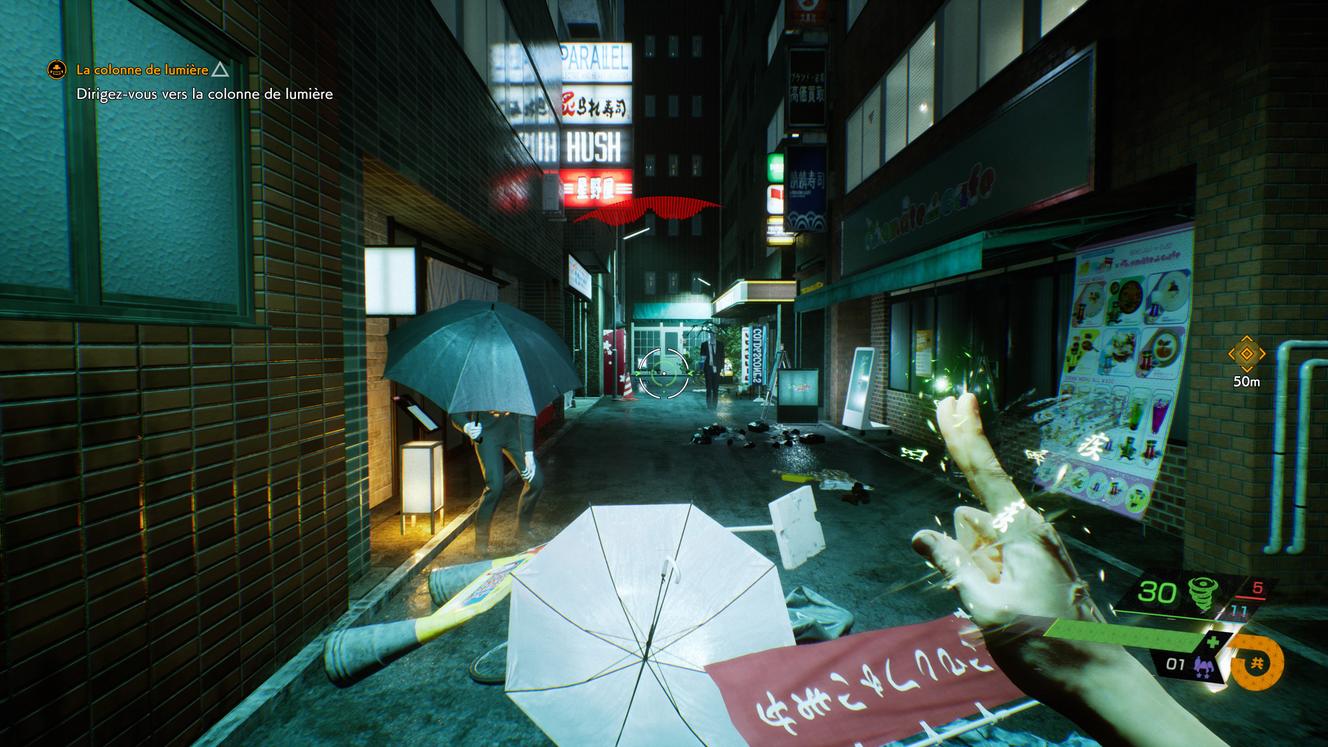
Pixel review:
We have loved:
- rainy and foggy night atmosphere of Tokyo whose inhabitants evaporated;
- Strange and amazing paranormal stories;
- A Japanese studio that skillfully draws on Japanese folklore and urban legends of Tokyo.
We liked less:
- Abundant ammo, food to restore life placed everywhere and highly anticipated enemies;
- Verbs that tend to recur over the course of the adventure;
- The screen is full of directions constantly telling us what to do and where to go.
It’s more for you if:
- dreaming of visiting (or seeing) Tokyo again;
- You are unbeatable in Japanese culture;
- I’m tired ofelden ring And you are looking for a game without fuss.
Not for you if:
- You are a fan of dynamic shooting games;
- You are looking for a spiritual successor vampire ;
- You, like almost everyone, have never found a PS5 and don’t own a computer.
Pixel Note:
13,000 steps per night / 20,000 souls captured thanks to Katashiro.

“Incurable web evangelist. Hipster-friendly gamer. Award-winning entrepreneur. Falls down a lot.”
